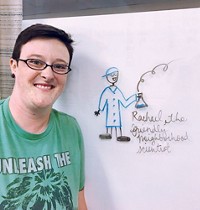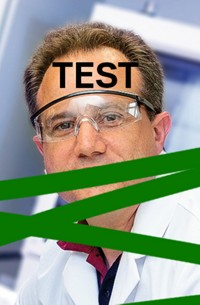Advertisement
Grab your lab coat. Let's get started
Welcome!
Welcome!
Create an account below to get 6 C&EN articles per month, receive newsletters and more - all free.
It seems this is your first time logging in online. Please enter the following information to continue.
As an ACS member you automatically get access to this site. All we need is few more details to create your reading experience.
Not you? Sign in with a different account.
Not you? Sign in with a different account.
ERROR 1
ERROR 1
ERROR 2
ERROR 2
ERROR 2
ERROR 2
ERROR 2
Password and Confirm password must match.
If you have an ACS member number, please enter it here so we can link this account to your membership. (optional)
ERROR 2
ACS values your privacy. By submitting your information, you are gaining access to C&EN and subscribing to our weekly newsletter. We use the information you provide to make your reading experience better, and we will never sell your data to third party members.
Careers
Describing The Doctorate
by Sarah Everts
September 4, 2006
| A version of this story appeared in
Volume 84, Issue 36
LOFTY GOALS
No synthetic chemist would design a reaction scheme without a clear knowledge of the product they wish to make. The same goes for doctoral reform. "We looked for traits that we wanted to see in our graduates," says University of Wisconsin, Madison, chemistry professor Judith N. Burstyn. "Then we tried to map out a graduate program to develop the traits."
So what traits does a doctorate have? If you ask the Carnegie Institute, someone with a Ph.D. is a steward of their discipline, says Lawrence Martin, dean of the Graduate School at the State University of New York, Stony Brook. "This resonates with me. It means if everyone else in your field dropped out, science research wouldn't return to the dark ages. That's a tall order, but that's the goal,"
Howard University chemistry graduate student Ramsey Smith defines someone with a doctorate as a person who can come up with a solid research idea and know how to implement it. "You aren't a walking library, but you know how to seek the knowledge needed to solve a problem."
SUNY Stony Brook graduate chemistry student Erik Stolarzewicz sums it up this way: "Independence, leadership, communication. Independence to resolve problems on your own. Leadership in that you may be an adviser to others in the field of chemistry. Communication because if you can't communicate you'll never get anywhere."
MORE ON THIS STORY
- Changing Times
- Evolving The Doctorate Carnegie initiative inspires reshaping of Ph.D. programs to fit modern times.
- Benefits
Maternity Leave For Graduate Students. - Lofty Goals
Describing The Doctorate. - Passport To Science Once outnumbered by humanities majors, science students are now studying abroad in force.
- Global Science Corps
Program provides opportunities for established scientists to do research in developing countries. - Virtual Help
Study Abroad Web Resources. - No Substitute For Experience Chemical engineering students at all levels can benefit from 'learn and earn' opportunities.
- 10 Tips To Help You Get A Faculty Job Faculty from around the country share stories to help candidates 'ace' the interview process.
"Someday, the doctoral student could be faced with an empty room filled only with ideas," says Michael G. White, the chemistry department chair at SUNY Stony Brook. Someone with a Ph.D. should know the essential steps to implement them. Faced with that empty room and a set of ideas, can they make their ideas reality?"









Join the conversation
Contact the reporter
Submit a Letter to the Editor for publication
Engage with us on Twitter